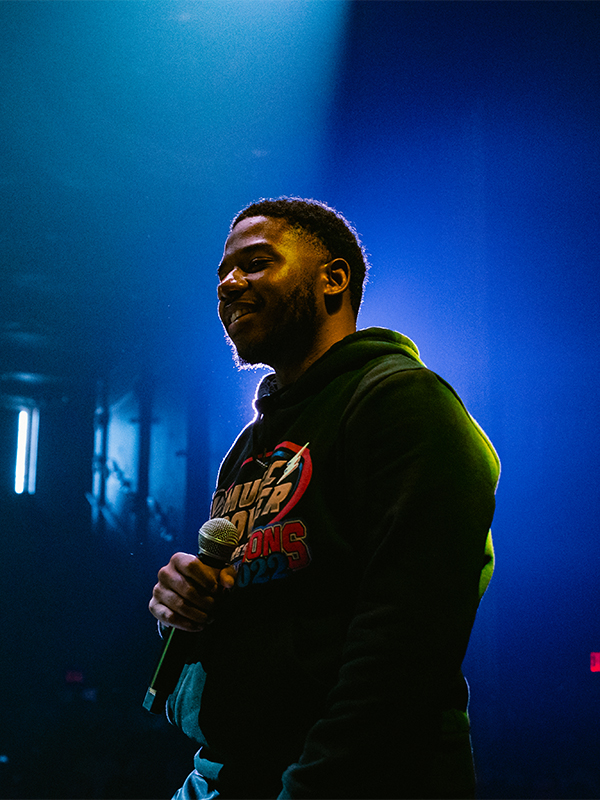In between sets, more frequently than breaking for sips of water, California-based rapper LaRussell takes moments to remind his audience that “It’s different.”
That phrase might as well be trademarked. When he’s not chanting it on stage, he’s using it in social captions like a signature. At this point, LaRussell’s fans—much like the lyrics from the 21 albums he’s released since 2018—know it by heart. One fan has it tattooed on her arm.
The first thought that entered my mind as I sat among a sea of 450 fans at LaRussell’s sold-out, at-home show at Vallejo’s Empress Theatre on Oct. 8 was: “What exactly is ‘it’ referring to?”
The most obvious difference is, unlike most competing rappers, LaRussell is an independent artist, unsigned to a label. He doesn’t rely on streams but rather encourages his fans to buy his work directly from him. When he’s not performing at public venues, he’s hosting gigs at his childhood home in the Bay Area’s Vallejo, which he calls “The Pergola,” allowing fans to bid on a chance to attend. And he has no plans of changing any of this.
Through intimate performances, sliding-scale prices and an investment platform for fans, LaRussell, via his Good Compenny brand, is paving a new path for himself and other music entrepreneurs that follow.
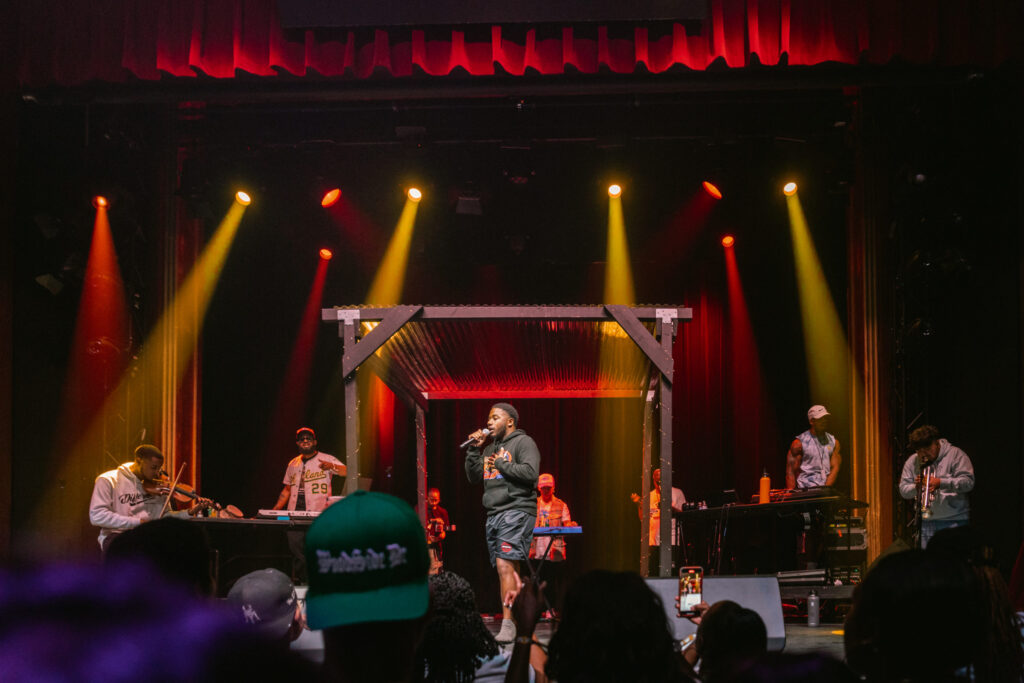
“I had to be independent out of necessity,” says LaRussell. “No one was looking for an artist from Vallejo to sign to their label. But through this, I was able to fulfill all my needs.”
This model seems to be working for him: Early last month, in a matter of 24 hours, LaRussell hit 1,200 sales for his latest album I Hate When Life’s Going Great, via the blockchain platform EVEN—before it was even released on any third-party streaming platforms like Spotify. People paid up to $1,000 per album. (More on this later.)
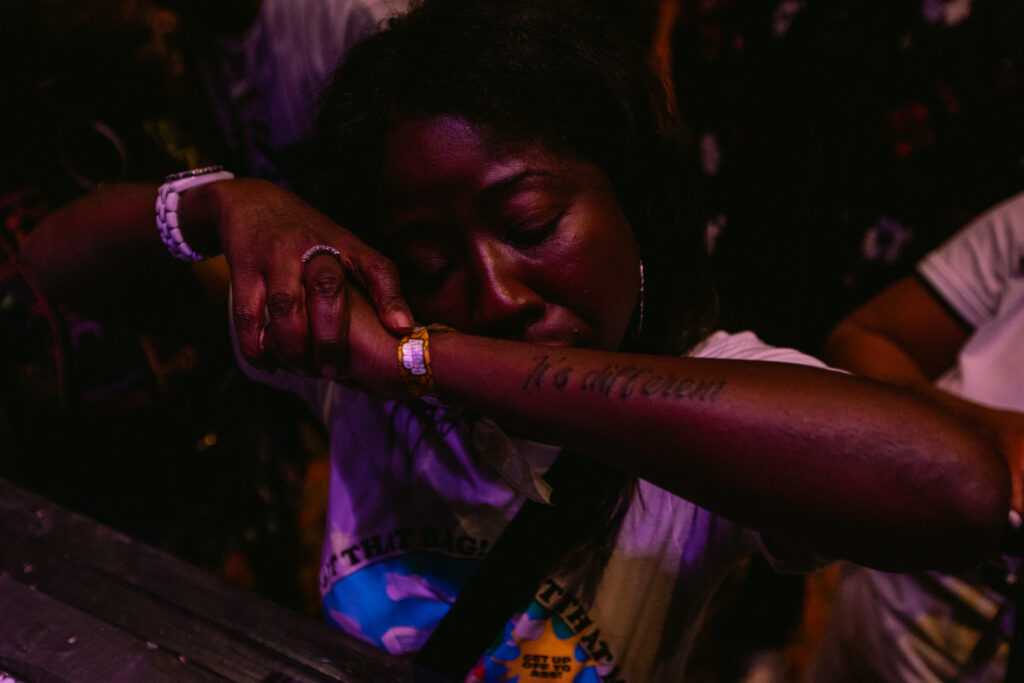
And as much as he loves playing at home—that’s evident—his talents are in increasing demand on the road. His shows sell out in major national music hubs like Los Angeles, New York and Washington, D.C. In October, a small pop-up show in Brooklyn turned into a full-blown concert; LaRussell sold 500 tickets in eight hours.
Upon meeting the 28-year-old artist, I was greeted with a bear hug and a huge smile. But that wasn’t the first time we had interacted. Turns out LaRussell himself was the one communicating via email to coordinate the interview.
When I ask him how he has the bandwidth to answer business emails, he replies, “Didn’t it feel good when you found out you were talking to me? Even if I don’t touch it, I’ve seen it.”
Does he think this is sustainable? “We’ll find out,” he answers.
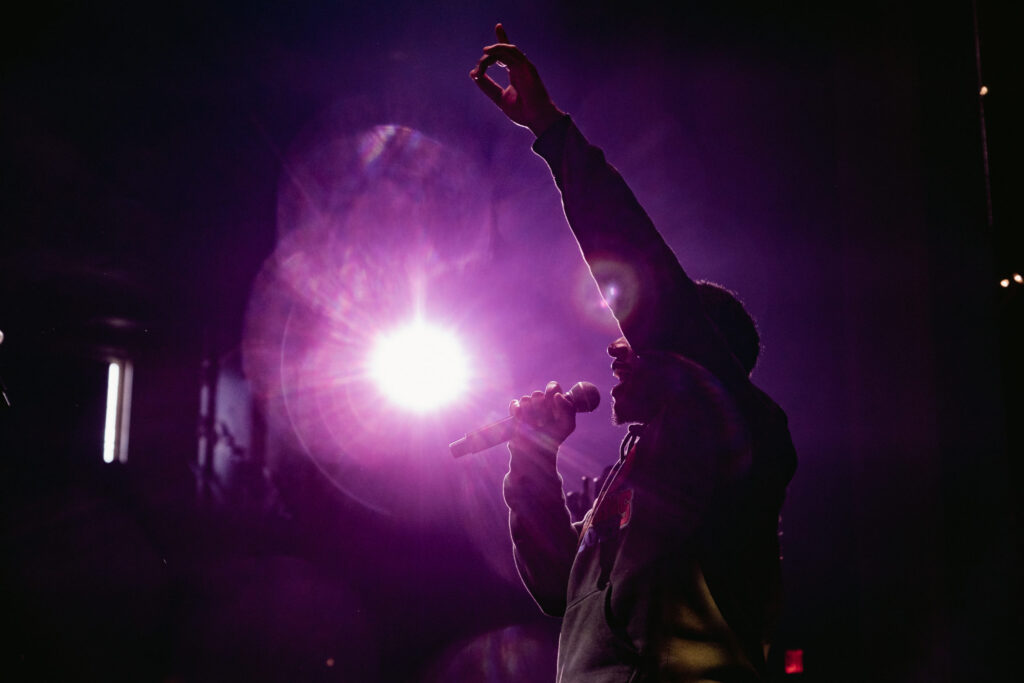
LaRussell certainly doesn’t have time to be thinking about if things will fail. He does, however, make time for things he cares about, like greeting fans before taking the stage, where he and his team constructed a pergola-type roof structure that same day. Minutes ahead of start time, the proud Libra circulates through the theater’s bar and dining area to mingle, his voice projecting easily without a mic. One excited fan, in astonishment, asks him, “You remember me?” LaRussell responds, with his signature animated laugh, “Of course!”
Integrating fans into the ongoing work he’s putting out is important to LaRussell, which is why they can earn streaming royalties from his music through EVEN (the same platform they can purchase his albums directly from).
“I basically created a stock for my music,” says LaRussell. He also encourages fans to buy digital downloads and physical, signed CDs directly from him. And with his “Proud to Pay” sliding-scale model, they pay whatever they want.
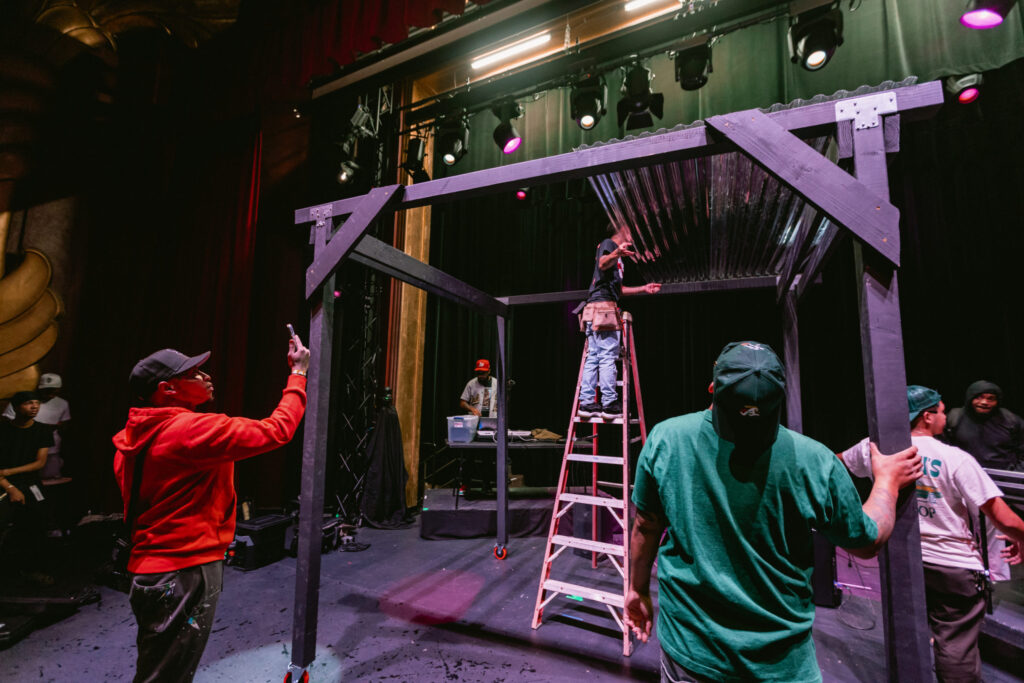
“We’re home,” LaRussell chants as attendees—full from the array of home-cooked food provided in the lobby—get comfortable in the theater. The performance space is a traditional one, with rows and levels of cushioned seats, yet most people are either standing at their seats or flocking to the aisles towards the front of the stage.
For his 2.5-hour set, LaRussell performs songs from his latest album and some popular throwbacks with violinist Michael Prince, trumpet player Richard Cruz, and DJs Phani and Swaggy B. Occasional smooth romantic vocals on songs like Gotham show he’s able to hold his own in the singing department. But more often, his music combines clean bars and lyrics that detail how he’s building his career from the ground up. And most of his songs remind his listeners where he’s from. At one point, he brings up a young fan and they tag team his song, Sprinkle, singing: “I’m from the V-A-L-L-E-J-O / N-O-R-T-H side tho / Sprinkle me Mayne.”
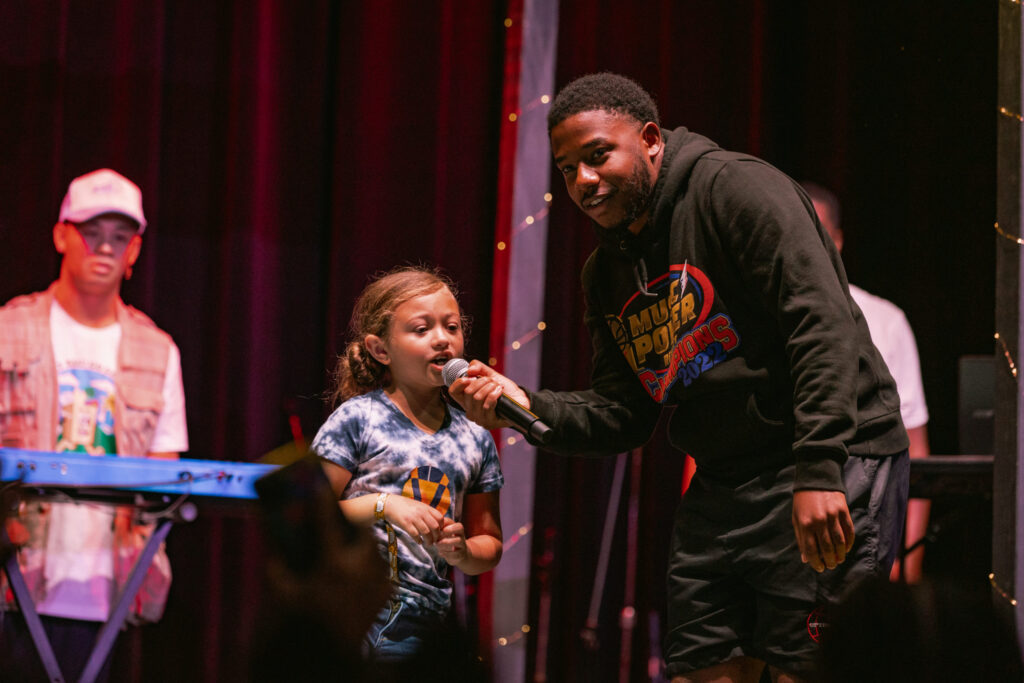
He also brings on other Bay Area-based performers—Shootergang Kony, DaBoii, P-lo, Young Bari & J-ROC, Nef The Pharaoh, and B-Legit. At various times, he gives them the floor to perform. He lingers on the side of the stage, hyping them up alongside the audience with a giant grin of pride.
“We now have more artists who are doing well in the Bay, who love each other, than we’ve ever got to witness,” says LaRussell.
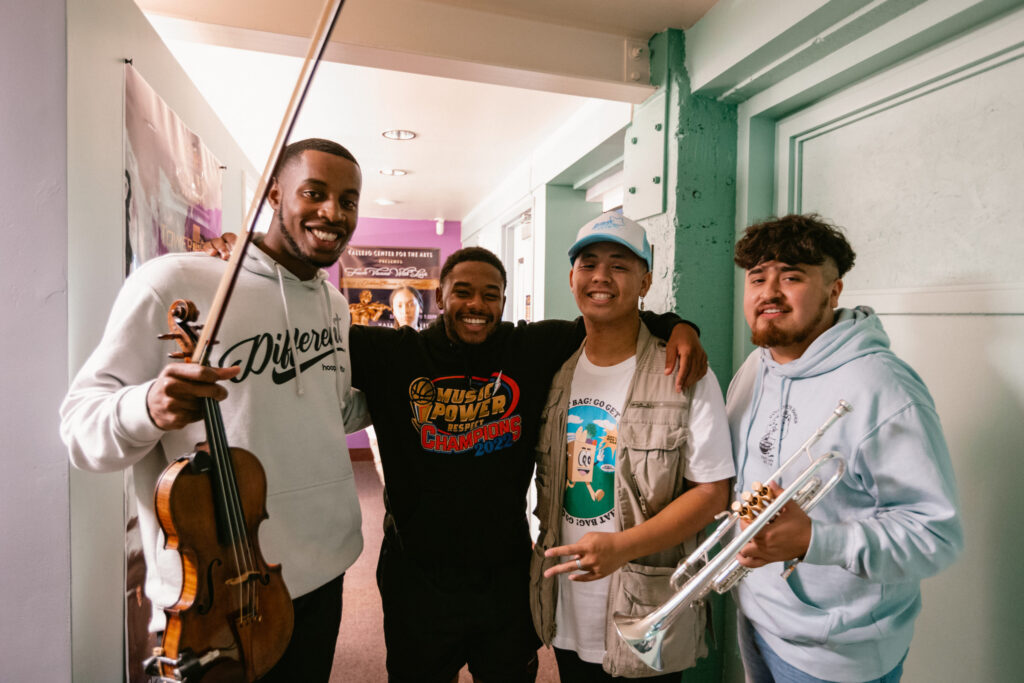
Off stage, LaRussell oversees his multifaceted “creative collective” brand, Good Compenny, which encompasses clothing and other products but also serves as a launchpad to spotlight budding musicians.
“It’s a bit of everything,” says LaRussell. “It’s merch. It’s love. It’s ingenuity. It’s innovation. It’s family. We’re just trying to cultivate these spaces with dope people. A lot of my homies are some of my favorite artists, so I really built Good Compenny to be able to assist all of us in our careers and help propel us.”
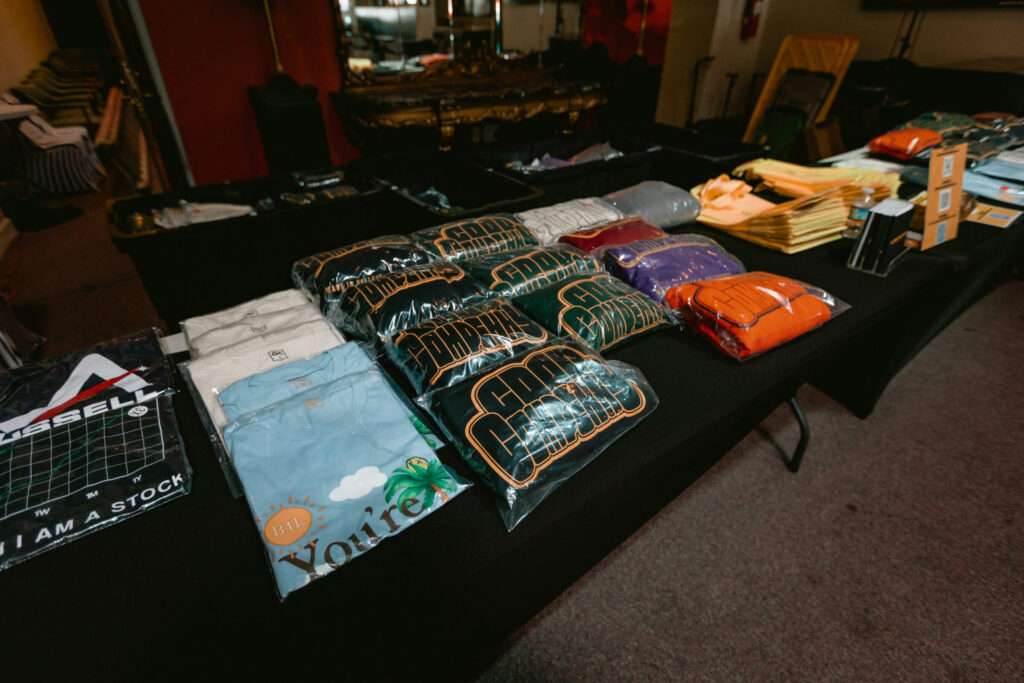
Most of what he’s learned about business has been by doing. “I went back to college for a brief period for about three months online—I took business management—and I was so unimpressed,” says LaRussell. “I dropped out because I was like, ‘Wow, I do this shit every day.’ I’ve been doing this for the past three years building my own company.”
He attributes a great deal of this grinding mentality to his family, especially his dad. “My pops was always rigid—not like in a negative way but in a way that [provided] structure,” says LaRussell. “These are the things that gave me a solid foundation.”
At his backyard concerts, you might find his dad serving up some food, along with a slew of other family members. “When you come to the backyard, it feels like a cookout—my cousins and my aunties, you know, we’re all here,” says LaRussell. “This is what we like to do.”
And, like the foundation it seems LaRussell is building his brand on, he adds, “We’re just inviting people to come and join in with us.”
